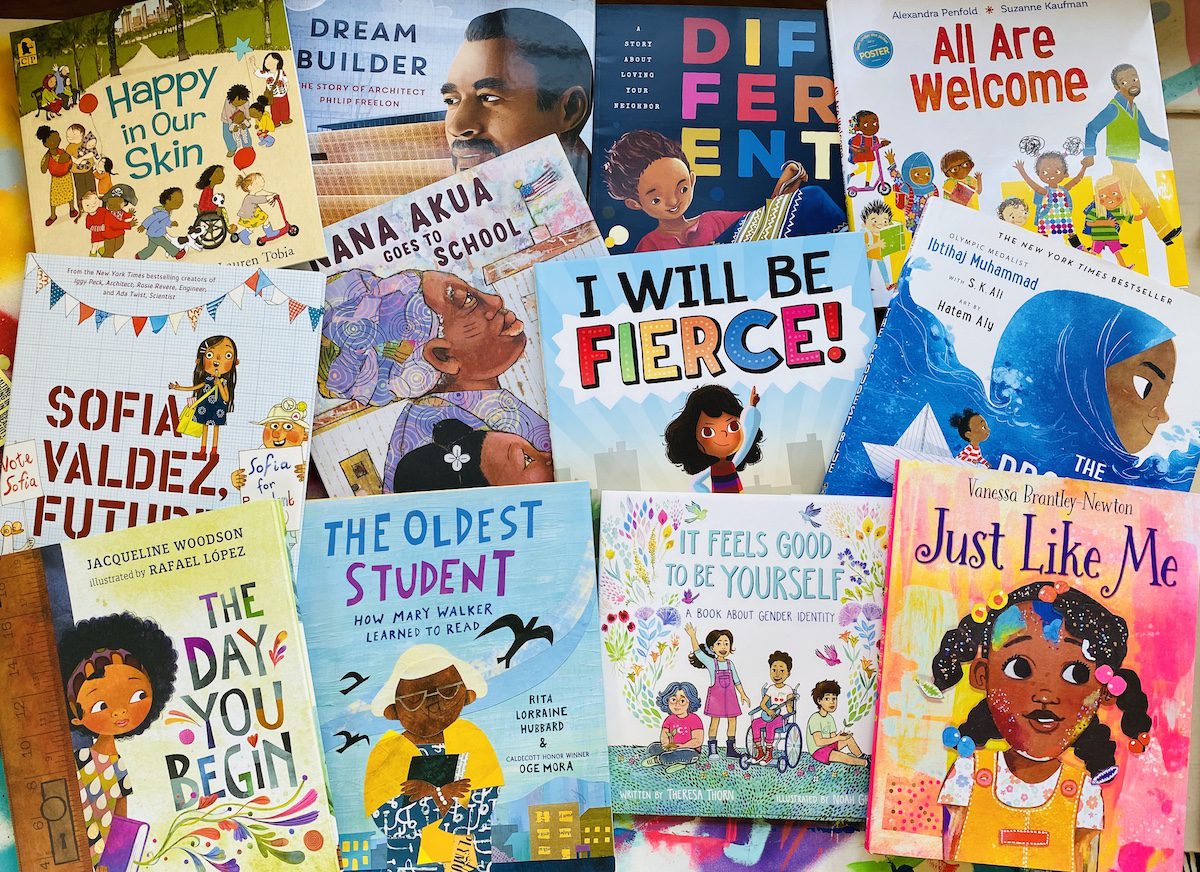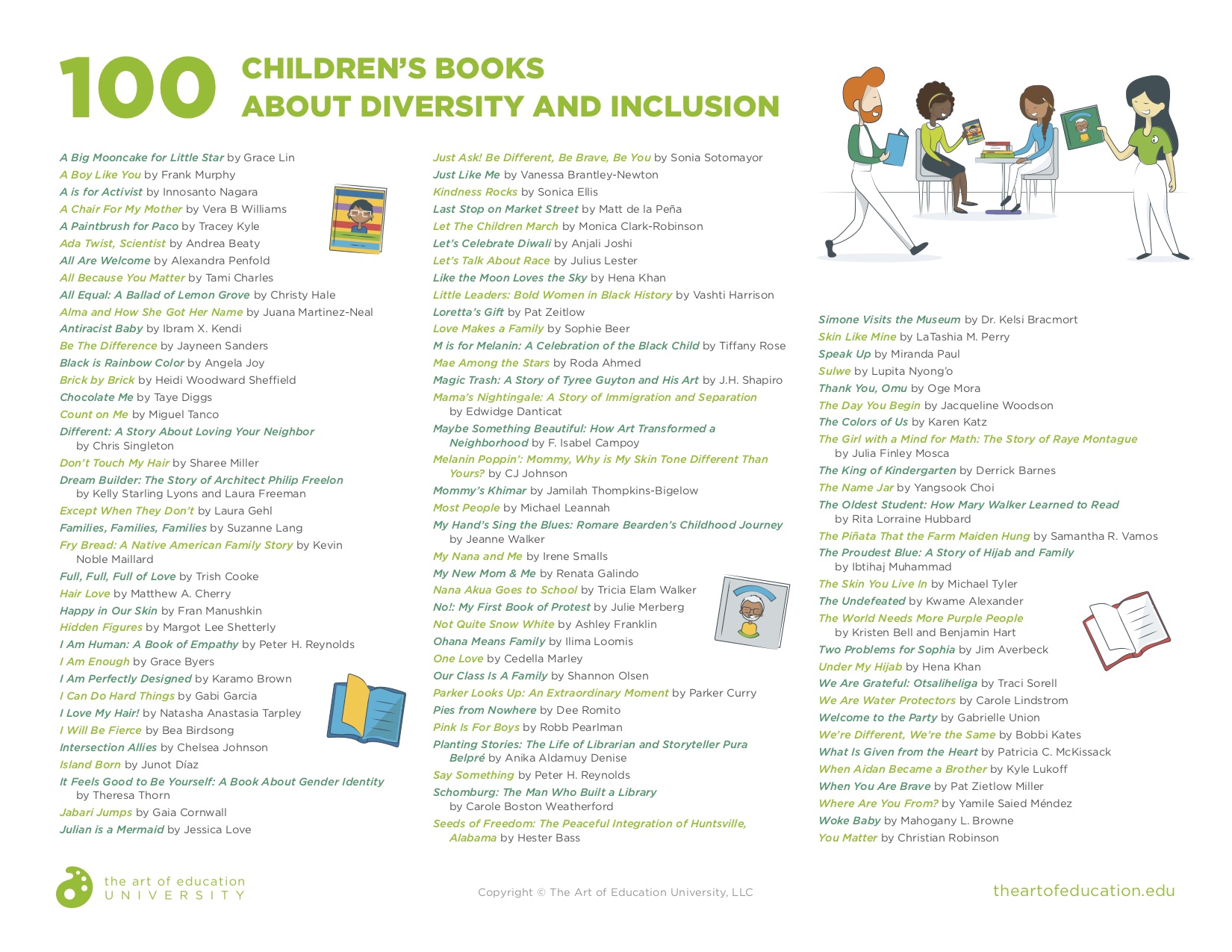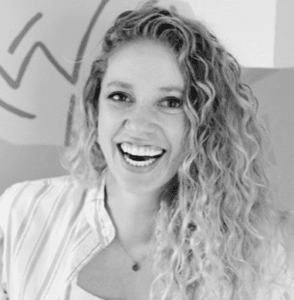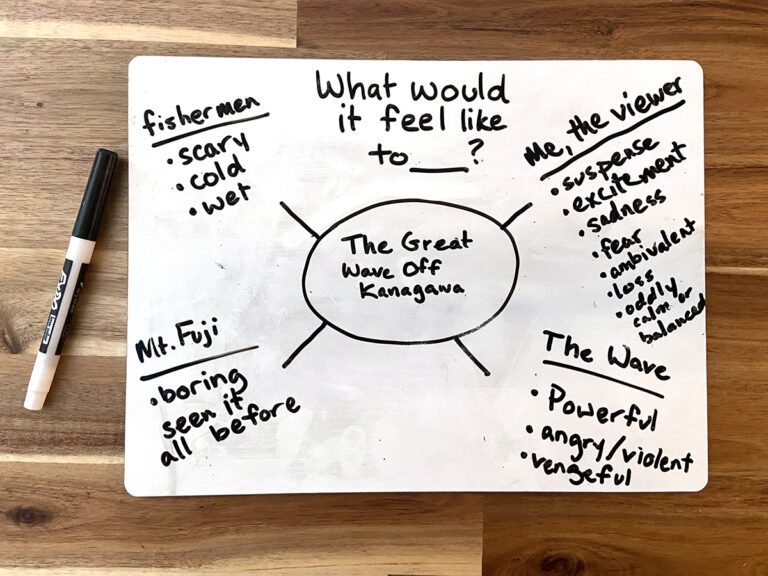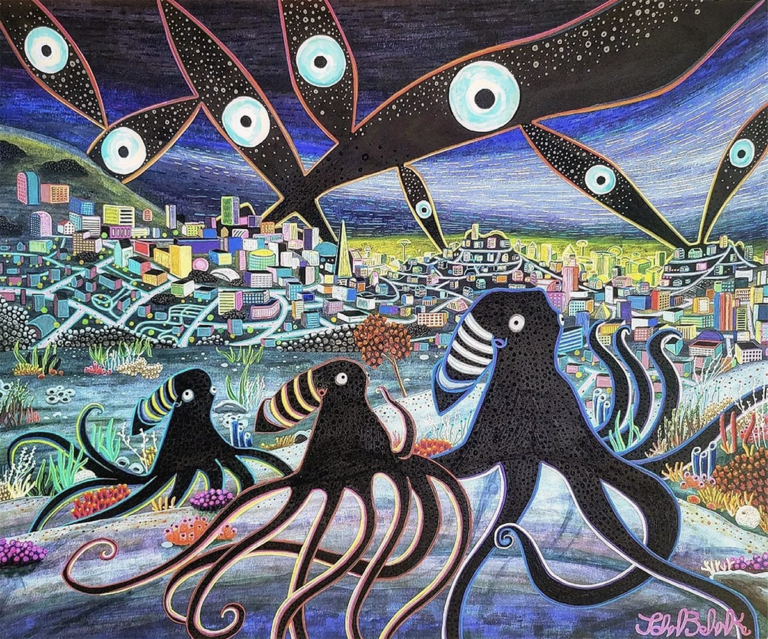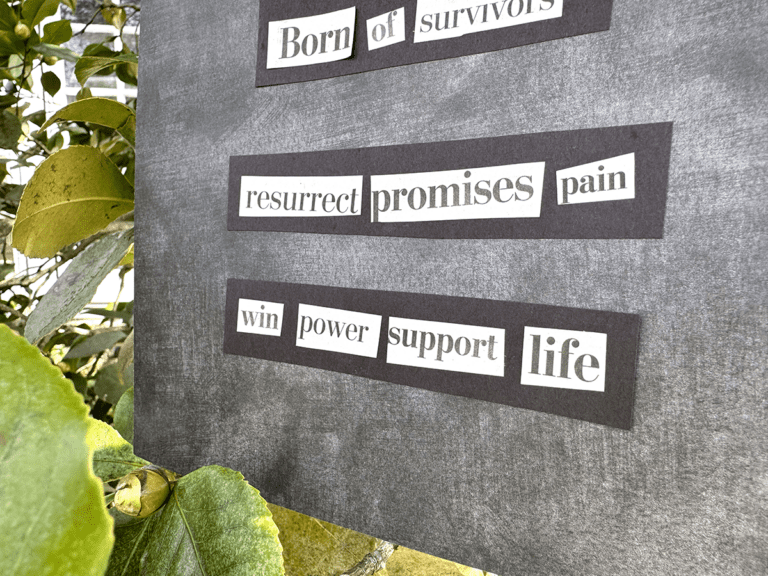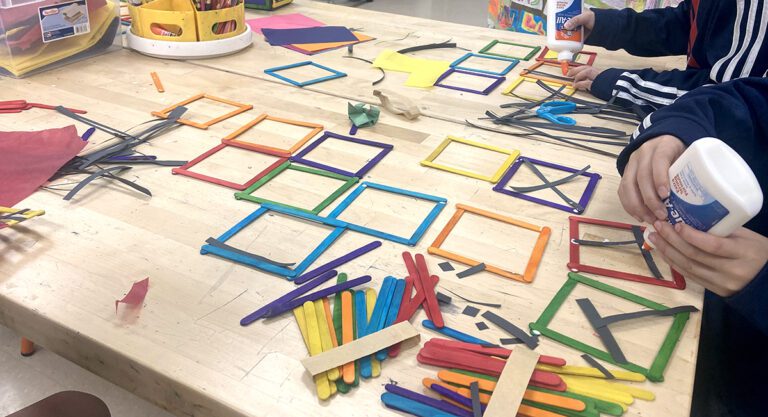As art teachers, we can make meaningful connections with students and create safe spaces for important conversations. Of course, we teach our students how to be great artists, but we also need to teach them how to be amazing humans.
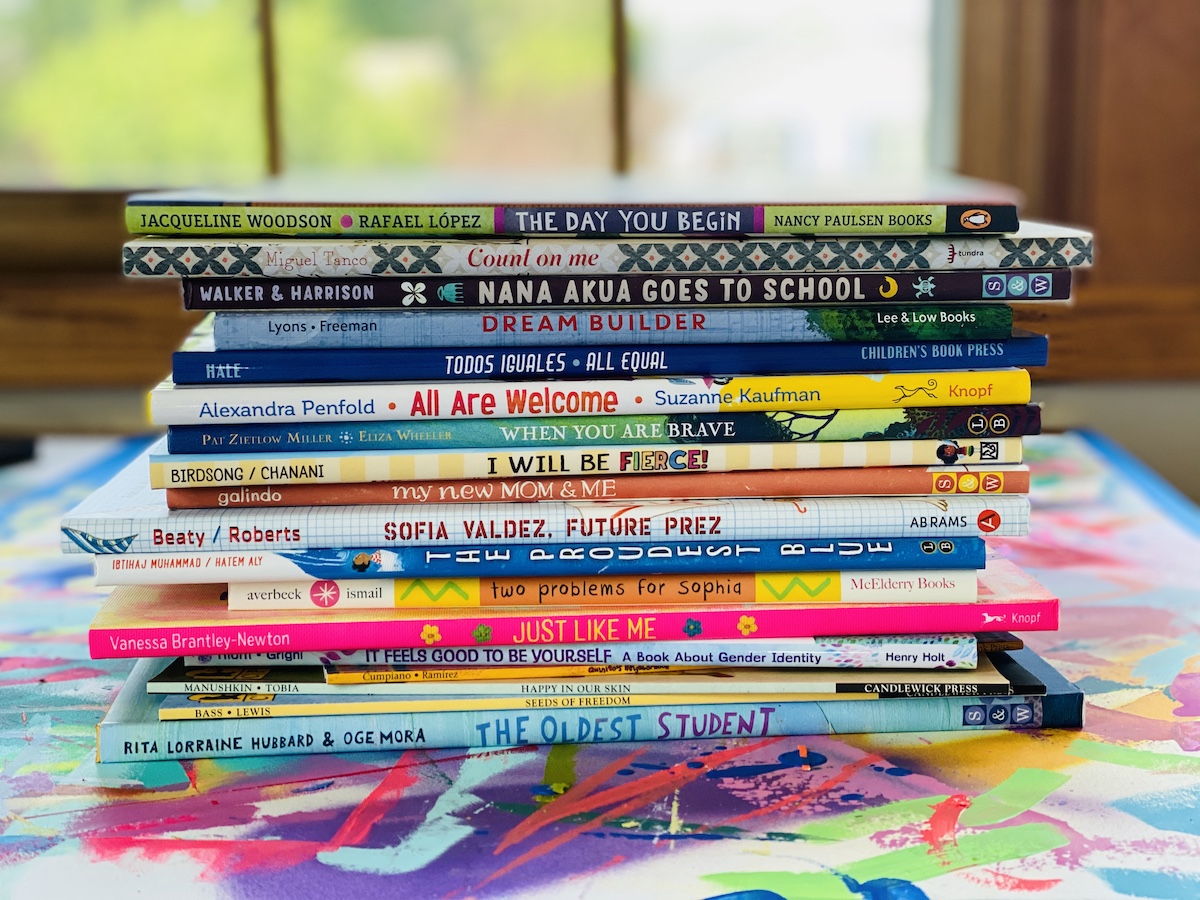
Part of practicing how to be a good human is to learn about all types of people and their experiences. This list of 100 children’s books is only a start. There are thousands of resources available for teaching an empathetic and inclusive classroom and inclusivity for all learners in the art room. Having open conversations, sharing stories, and creating diverse art projects will allow students to have more meaningful connections with art, their individual experiences, and their world.
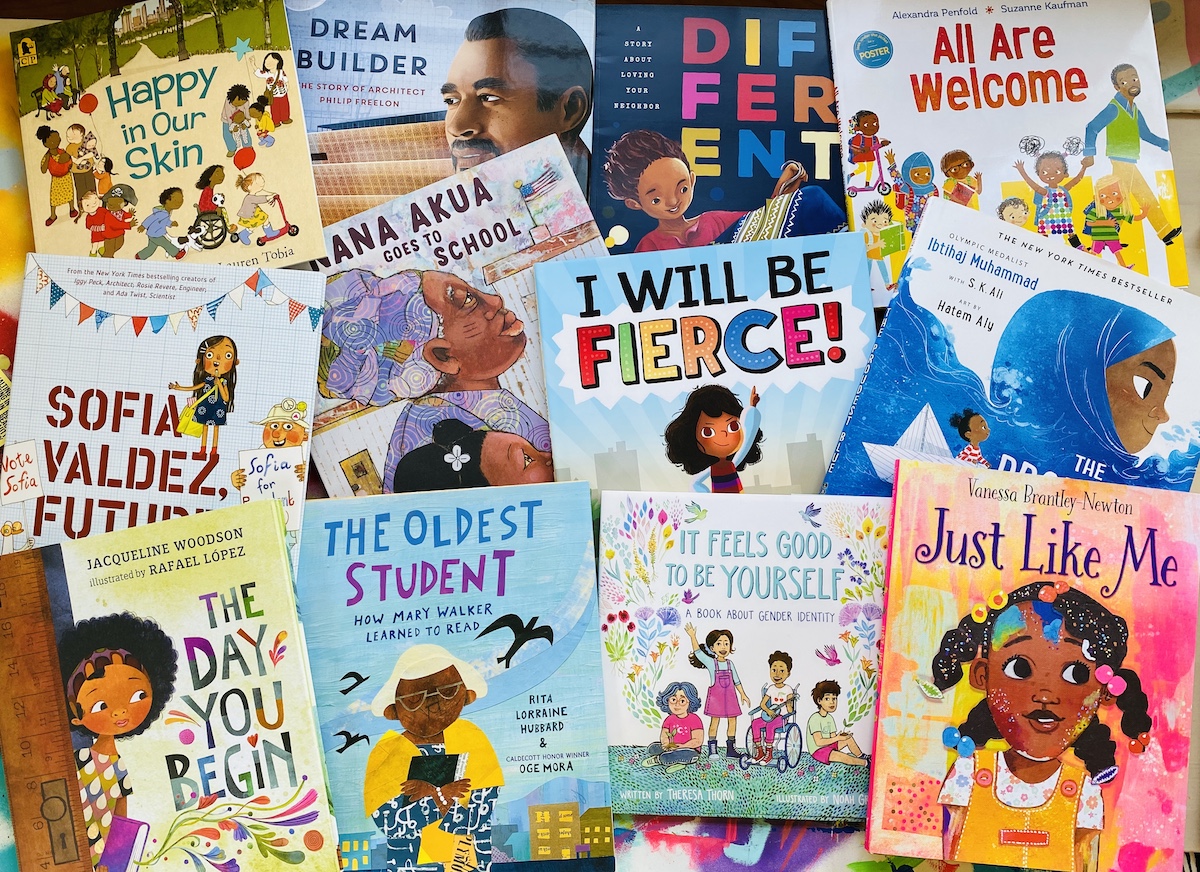
Take the time to have a conversation with your students before and after reading a book together.
Begin the conversation by asking questions such as:
- What qualities make you unique? What qualities make other people unique?
- What can we learn from stories different than our own?
- What will you do to spread love and acceptance?
- What do your actions say about what kind of person you are?
- What did you do when you saw someone being hurt?
100 Children’s Books about Diversity and Inclusion
A Big Mooncake for Little Star by Grace Lin
A Boy Like You by Frank Murphy
A is for Activist by Innosanto Nagara
A Chair For My Mother by Vera B Williams
A Paintbrush for Paco by Tracey Kyle
Ada Twist, Scientist by Andrea Beaty
All Are Welcome by Alexandra Penfold
All Because You Matter by Tami Charles
All Equal: A Ballad of Lemon Grove by Christy Hale
Alma and How She Got Her Name by Juana Martinez-Neal
Antiracist Baby by Ibram X. Kendi
Be The Difference by Jayneen Sanders
Black is a Rainbow Color by Angela Joy
Brick by Brick by Heidi Woodward Sheffield
Chocolate Me by Taye Diggs
Count on Me by Miguel Tanco
Different: A Story About Loving Your Neighbor by Chris Singleton
Don’t Touch My Hair by Sharee Miller
Dream Builder: The Story of Architect Philip Freelon by KellyStarling Lyons and Laura Freeman
Except When They Don’t by Laura Gehl
Families, Families, Families by Suzanne Lang
Fry Bread: A Native American Family Story by Kevin Noble Maillard
Full, Full, Full of Love by Trish Cooke
Hair Love by Matthew A. Cherry
Happy in Our Skin by Fran Manushkin
Hidden Figures by Margot Lee Shetterly
I Am Human: A Book fo Empathy by Peter H. Reynolds
I Am Enough by Grace Byers
I Am Perfectly Designed by Karamo Brown
I Can Do Hard Things by Gabi Garcia
I Love My Hair! by Natasha Anastasia Tarpley
I Will Be Fierce by Bea Birdsong
Intersection Allies by Chelsea Johnson
Island Born by Junot Díaz
It Feels Good to Be Yourself: A Book About Gender Identity by Theresa Thorn
Jabari Jumps by Gaia Cornwall
Julian is a Mermaid by Jessica Love
Just Ask! Be Different, Be Brave, Be You by Sonia Sotomayor
Just Like Me by Vanessa Brantley-Newton
Kindness Rocks by Sonica Ellis
Last Stop on Market Street by Matt de la Peña
Let The Children March by Monica Clark-Robinson
Let’s Celebrate Diwali by Anjali Joshi
Let’s Talk About Race by Julius Lester
Like the Moon Loves the Sky by Hena Khan
Little Leaders: Bold Women in Black History by Vashti Harrison
Loretta’s Gift by Pat Zietlow
Love Makes a Family by Sophie Beer
M is for Melanin: A Celebration of the Black Child by Tiffany Rose
Mae Among the Stars by Roda Ahmed
Magic Trash: A Story of Tyree Guyton and His Art by J.H. Shapiro
Mama’s Nightingale: A Story of Immigration and Separation by Edwidge Danticat
Maybe Something Beautiful: How Art Transformed a Neighborhood by F. Isabel Campoy
Melanin Poppin’: Mommy, Why is My Skin Tone Different Than Yours? by CJ Johnson
Mommy’s Khimar by Jamilah Thompkins-Bigelow
Most People by Michael Leannah
My Hand’s Sing the Blues: Romare Bearden’s Childhood Journey by Jeanne Walker
My Nana and Me by Irene Smalls
My New Mom & Me by Renata Galindo
Nana Akua Goes to School by Tricia Elam Walker
No!: My First Book of Protest by Julie Merberg
Not Quite Snow White by Ashley Franklin
‘Ohana Means Family by Ilima Loomis
One Love by Cedella Marley
Our Class Is A Family by Shannon Olsen
Parker Looks Up: An Extraordinary Moment by Parker Curry
Pies from Nowhere by Dee Romito
Pink Is For Boys by Robb Pearlman
Planting Stories: The Life of Librarian and Storyteller Pura Belpré by Anika Aldamuy Denise
Say Something by Peter H. Reynolds
Schomburg: The Man Who Built a Library by Carole Boston Weatherford
Seeds of Freedom: The Peaceful Integration of Huntsville, Alabama by Hester Bass
Simone Visits the Museum by Dr. Kelsi Bracmort
Skin Like Mine by LaTashia M. Perry
Speak Up by Miranda Paul
Sulwe by Lupita Nyong’o
Thank You, Omu by Oge Mora
The Day You Begin by Jacqueline Woodson
The Colors of Us by Karen Katz
The Girl with a Mind for Math: The Story of Raye Montague by Julia Finley Mosca
The King of Kindergarten by Derrick Barnes
The Name Jar by Yangsook Choi
The Oldest Student: How Mary Walker Learned to Read by Rita Lorraine Hubbard
The Piñata That the Farm Maiden Hung by Samantha R. Vamos
The Proudest Blue: A Story of Hijab and Family by Ibtihaj Muhammad
The Skin You Live In by Michael Tyler
The Undefeated by Kwame Alexander
The World Needs More Purple People by Kristen Bell and Benjamin Hart
Two Problems for Sophia by Jim Averbeck
Under My Hijab by Hena Khan
We Are Grateful: Otsaliheliga by Traci Sorell
We Are Water Protectors by Carole Lindstrom
Welcome to the Party by Gabrielle Union
We’re Different, We’re the Same by Bobbi Kates
What Is Given from the Heart by Patricia C. McKissack
When Aidan Became a Brother by Kyle Lukoff
When You Are Brave by Pat Zietlow Miller
Where Are You From? by Yamile Saied Méndez
Woke Baby by Mahogany L. Browne
You Matter by Christian Robinson
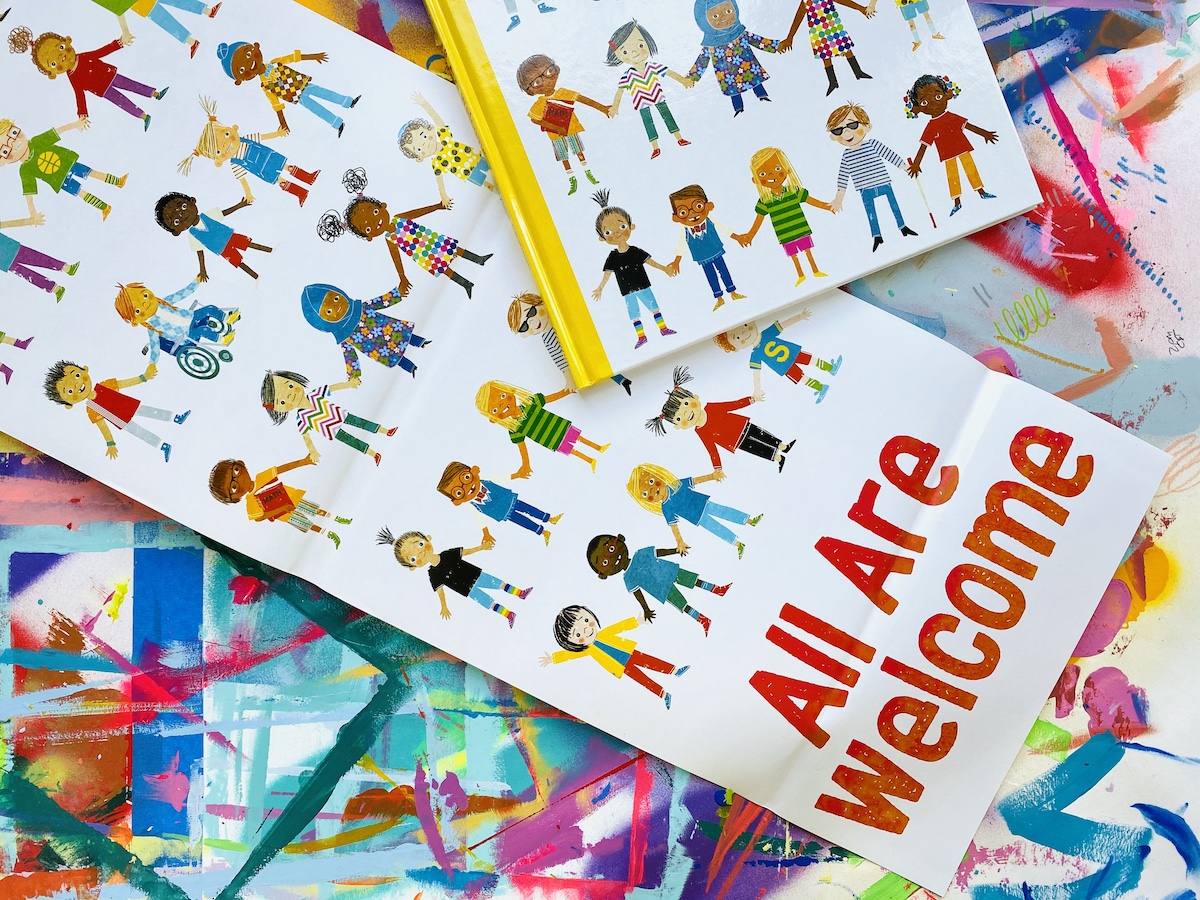
Books are powerful tools to use with students of all ages. Often, they provide the perfect jumping-off point for meaningful conversations. As art teachers, it is our job to share these tools to help students grow and stretch—not only as artists but as human beings, too.
Why are books such powerful conversation starters?
What other books would you include on this list?
Why is it important to share stories of hardships and growth and also stories of positive experiences?
Magazine articles and podcasts are opinions of professional education contributors and do not necessarily represent the position of the Art of Education University (AOEU) or its academic offerings. Contributors use terms in the way they are most often talked about in the scope of their educational experiences.
